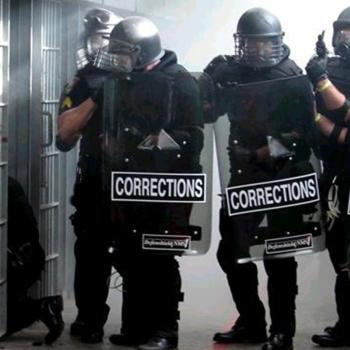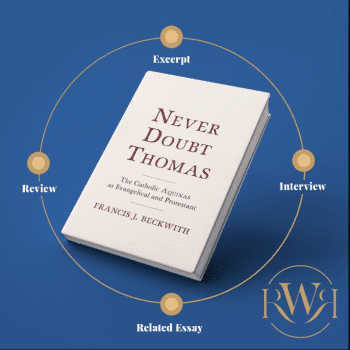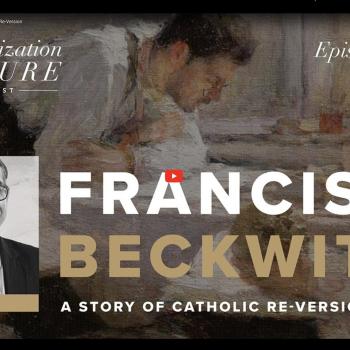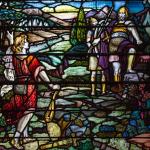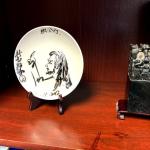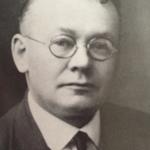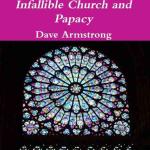I recently came across a post by one of my fellow Patheos bloggers, Fred Clark. In it, he offers this analysis of American Evangelicals and their changing views on abortion:
White American evangelicals are “pro-life.” This is the single most important political aspect of American
evangelicalism. It is the single most important theological aspect of American evangelicalism. And it is the paramount factor in evangelical identity for evangelicals themselves.
It’s also a very recent development. Thirty years ago, this was not the case. Fifty years ago, it was unimaginable.
Only remember what you’re supposed to remember. Or else.
People like Lewis Smedes and Carl F.H. Henry remain revered figures in evangelical history, but if they were saying publicly today what they said publicly about abortion in their lifetimes, they would be excommunicated and shunned as heretics.
The speed and totality of evangelicals’ sea-change on abortion is remarkable. But what’s really astonishing is that such a huge theological, political and cultural change occurred within evangelical Protestantism and no one talks about it. No one acknowledges that this huge change was, in fact, a huge change.
Mr. Clark is certainly correct about the change among Evangelicals. In fact, it is so widely known, and such an uncontroversial reading of American religious history, I had no idea that anyone was keeping it hidden. Evangelicals, of course, have shifted on other issues and questions as well. Take, for example, their view of Catholics. A generation ago, your typical Evangelical pastor would wonder out loud whether “Roman Catholics are truly Christians.” One rarely hears that today. The influence of charismatic and Pentecostal spirituality as well as more liturgical traditions, such as Catholicism, Eastern Orthodoxy, and High Church Anglicanism, have shaped the contemporary Evangelical world in ways that would have been unimaginable in 1947 at the founding of Fuller Theological Seminary.
Of course, most every weekly church goer is unaware that these changes have occurred, and have happened over a relatively short period of time. For most rank and file Evangelicals, what they know of Evangelicalism is what they were born into or grew up in, and much of it is not close to what they would have found in Pasadena in the mid-1940s. That does not mean that there is some grand conspiracy to keep these things hidden. It just means that once things change, what results in the present consciousness is what some have dubbed “the new normal.” Because we live in an age that is ahistorical to a fault—requiring that inherited traditions make their case at the bar of detached “reason” or be rejected without remainder—the absence of historical consciousness is endemic to the nature of the modern mind regardless if it finds itself on Sunday morning at Saddleback Valley Church or St. Peter’s Basilica, or on the beach at Santa Monica marinated in weed pouring over the works of Henry David Thoreau. (This, by the way, is why it is an insult and not a compliment to be called “old fashioned,” since it is dogmatically believed, without any critical reflection, that present fashion is always superior to, or a greater example of progress than, old fashion. But why believe that’s true? After all, most intellectuals have been modernists for hundreds of years, which makes the condemnation of the old fashioned itself an old fashion. Perhaps, then, the most hip thing we can do is to embrace ancient truths.)
But as to the issue at hand—Evangelicals and their changing understanding of abortion—many of us who have written on this issue have not hesitated to document this change, and some of us have in fact engaged some of the older Evangelicals who held a moderately prochoice position on abortion. Consider these examples, which are easily accessible online. In a 2003 special issue of the Southern Baptist Journal of Theology to commemorate the 30th anniversary of Roe v. Wade, Russell D. Moore published an article documenting the very changes that Mr. Clark claims have been secretly hidden from the public’s view: “The Gospel According to Jane Roe: Abortion Rights and the Shaping of Evangelical Theology.” At the time that Dr. Moore published this piece, he was executive director of the Carl F. H. Henry Institute for Evangelical Engagement at Southern Baptist Theological Seminary, where he presently serves as the dean of the School of Theology. Henry, as you can see above, was one of the figures mentioned by Clark in his post, and he is somebody whose views Moore mentions in his article. In fact, just yesterday, on the anniversary of Roe v. Wade, the president of Dr. Moore’s seminary, Dr. R. Albert Mohler, published an essay on one of the Washington Post‘s blogs. Entitled “Roe v. Wade anniversary: How abortion became an Evangelical issue,” Dr. Mohler acknowledges the same history that Dr. Moore presents in greater detail in his article. This is how Dr. Mohler begins his piece:
Were America’s evangelical Christians always stalwartly pro-life and opposed to abortion? Sadly, we were not, and the story behind that delay should be on our minds as we ponder the dark anniversary of Roe v. Wade. To our shame, when Roe came evangelicals were part of the problem.
This fact would be shocking to many Americans today, who naturally associate evangelical Christians with the pro-life cause. But, prior to Roe v. Wade in 1973, evangelicals were, with a few notable exceptions, confused and uncertain about the question of abortion.
The leading Evangelical magazine, Christianity Today, just months ago (October 31, 2012) published an online commentary about this history in which the author speaks candidly of it while adding the appropriate nuance absent from Mr. Clark’s post.
In December 1990, at the tender age of 30, I published a piece in the Journal of the Evangelical Theological Society (JETS): “Brave New Bible: A Response to the Moderate Evangelical Position on Abortion.” It was in response to an article published in JETS earlier that year (June 1990): “Evangelicals and Abortion.” That article was authored by Dolores E. Dunnett, principal of The Christian Grammar School in Roseville, Minnesota and wife of Walter Dunnett, the 1987 president of the Evangelical Theological Society. In 1991 I published an article in Bibliotheca Sacra, “A Critical Appraisal of Theological Arguments for Abortion Rights,” in which I address some of the arguments offered by Dunnett as well as those offered by other scholars including some Evangelicals.
There is, of course, much more that has been written about this issue than I can possibly cite here in this blog post. But I think you get the point. For a history that Mr. Clark claims”no one talks about,” it manages somehow to actually get talked about.






